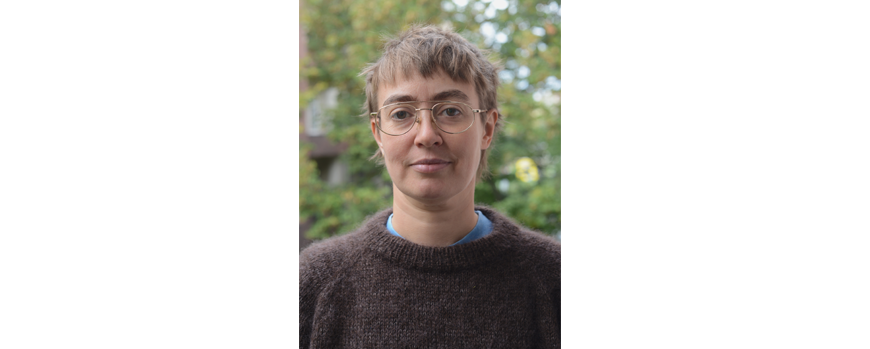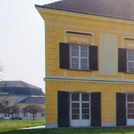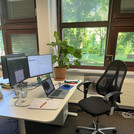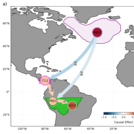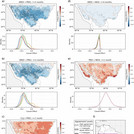Annika Högner - Research
Questions about your career path...
Where do you work and what is your role?
I work at the Integrated Climate Impacts working group at the International Institute for Applied Systems Analysis in Laxenburg (IIASA), just South of Vienna. IIASA is an international organisation that was founded during the cold war as a joint initiative by scientists from both sides of the iron curtain, to retain a channel for scientific collaboration and exchange. It is a very international environment with researchers from all over the world, and its mission feels urgent again in times of increasing geopolitical divide and conflict. Our work focuses on understanding the physical as well as social and economic impacts of climate change. I am a researcher here, so I contribute to the analysis, the development of research software, and the writing and communication of our findings.
How did you get your job?
I met my current boss, Prof. Carl-Friedrich Schleussner, through a student project in Johan Rockström's Earth System Science & Anthropocene course at CLEWS. My colleague and teammate, Tessa Möller, also a CLEWS graduate and now researcher at IIASA, knew Carl from her student job at Climate Analytics and brought him into the project which grew into a study of climate tipping risk under a set of policy relevant emission scenarios. After collaborating on this, he offered me a position as PhD student in his new working group.
Profile
- Master of Science CLEWS, graduated in 2024
- Since August 2024 researcher at IIASA, Laxenburg
Questions about your current job…
What does a typical working week look like for you?
Most of the time I sit at my desk in the office, reading papers, coding, plotting, and writing. I often have meetings and on some days there are lectures or seminars by other researchers or visiting scholars that I attend. I share my office with some very nice co-workers, and we often discuss the news, joke, problem solve, and brainstorm new ideas together.
What do you like about your job and what challenges you the most?
I like my colleagues and the working environment. There are always new problems to figure out, which is fun. And we work quite closely to the policy space, many IIASA researchers are involved in climate diplomacy and IPCC related work. This allows for interesting insights. The most challenging part of the job is probably the daily commute. Laxenburg is outside of Vienna, and I spend about an hour on the train/bus to get there every morning, and another hour to get back home. But Vienna is a great city, and working in the countryside has advantages too - a big park, a vegetable garden… so it’s all worth it.
What are the most important skills you should have for this work?
You need good coding, writing, and visualisation skills, and it helps to be curious and have the patience to sit through feeling like you don't know or understand anything. After a while, it will come together and things become more clear. Moving through this cycle of not knowing and then figuring things out again and again is probably the core.
Contact
Annika Högner, researcher in the integrated Climate Impacts Research Group
contact website
Questions about CLEWS in retrospect...
How much of the knowledge you learned in your CLEWS studies do you need in your job?
Pretty much all of it! CLEWS gave me both a very good overview of the different components of the climate system and a deeper understanding of some of those components. It introduced me to scientific programming, climate modeling, and data analysis tools, and gave me background insights into where environmental data comes from. Even though I don't currently do actual field work, all of this is super helpful when handling and trying to understand existing data, just like I think for people who end up in the field it is important to know how data they collect gets used down the line.
How do you feel about your CLEWS study from the University of Potsdam in retrospect?
CLEWS provided a solid foundation for my work today. It gave me access to opportunities and networks, and provided a nice collegial environment with small study groups and accompanied by an engaged study coordinator. It was fun studying alongside people from different disciplines and places in the world. I can absolutely recommend the program and am looking forward to how it will evolve.
Do you have any tips for our students for a successful career start?
Show up, ask questions, try things out, make mistakes, talk to people. Put into perspective what you do, and if you end up working in research, don't forget it's a great privilege, use it responsibly.
The interview was conducted in June 2025

